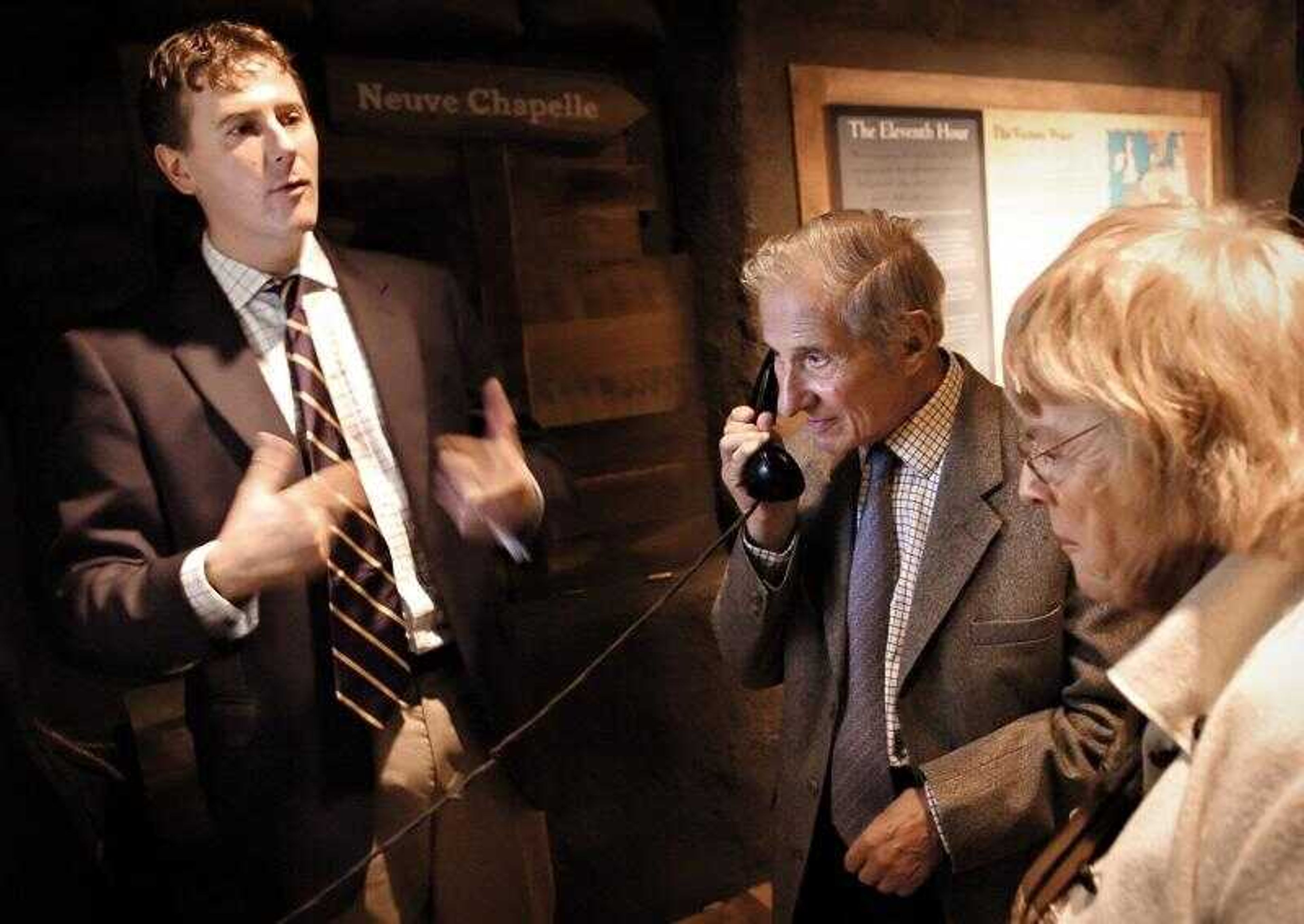Interpreter shares fond memories of Truman
FULTON, Mo. -- A special visitor toured the Winston Churchill Memorial and Library recently: Hugh Lunghi, who was an interpreter at the Tehran, Yalta and Potsdam conferences the Allied powers held at the end of World War II. Lunghi, now 86, was fluent in Russian, and he sometimes stood in for the senior British interpreter for Churchill at the conferences. ...
FULTON, Mo. -- A special visitor toured the Winston Churchill Memorial and Library recently: Hugh Lunghi, who was an interpreter at the Tehran, Yalta and Potsdam conferences the Allied powers held at the end of World War II.
Lunghi, now 86, was fluent in Russian, and he sometimes stood in for the senior British interpreter for Churchill at the conferences. Lunghi said he had been aware of Fulton as the site of Churchill's famous "Iron Curtain" speech ever since the British prime minister delivered it in March 1946.
Then-President Harry Truman of Missouri invited Churchill to give the speech at Westminster College. Lunghi had fond memories of Truman from the conferences.
"I thought [President Franklin] Roosevelt was, in fact, cold, although he pretended to be very warm and cheery," Lunghi said. "Truman, for us, was quite the opposite. He was approached very easily and played the piano very well. He talked about it and chatted to even the lower forms of life like the interpreters."
The job of interpreting, Lunghi said, was like that of a musician in an orchestra. The interpreter tries to stay true to the principal he is working for, just as the musician sticks with the orchestra conductor.
The job can be stressful.
"You are concentrating on the job and you are making sure that while you are not getting everything literally correct, you are doing what you can to put the sense of it over," Lunghi said.
Lunghi learned Russian from his mother, who was born, reared and educated in the Soviet Union. Later he studied the language at Pembroke College, Oxford University.
Westminster president Fletcher Lamkin said Lunghi's visit was historical.
"It's an honor to reconnect him to the best tribute to Winston Churchill in the world," Lamkin said. He added that an interview with Lunghi was recorded to be kept in the memorial's archives.
Rob Havers, executive director of the memorial, said Lunghi was in the United States to make a speech in Madison, Wis., and to visit friends in St. Louis.
Connect with the Southeast Missourian Newsroom:
For corrections to this story or other insights for the editor, click here. To submit a letter to the editor, click here. To learn about the Southeast Missourian’s AI Policy, click here.









